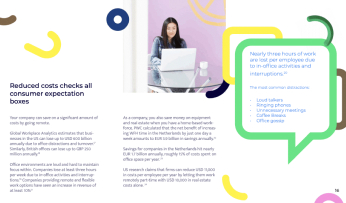Skills-based routing (SBR) is an ace in the sleeve for energising your customer service operation.
And, going remote is the first key facilitator.
For good routing, you need agents with specialised skills. Remote hiring opens up the whole world as a talent marketplace so you can easily recruit them.
Now imagine a supreme level of efficiency in your customer service. Customers who call in are immediately connected to special agents who can solve their complaints in one go.
That’s skills-based routing.
It’s a system assigning incoming customer queries – chats, emails, calls, etc – to the most suitable agents available.
But how is it so effective?
A step up from queue-based routing
SBR is different from older, queue-based routing practices, in which a support queue can only cover a single skill.
Agents used to be split into separate queues to handle specific issues. So, for example a Dutch-language queue, a payment support queue, or a technical advisory queue.
But even though you could have multiple queues, customers could only be assigned to one at a time.
As a result, customers weren’t getting the all-around skilled support they needed, if their query required more than one skill: e.g., language support and payment-related.
In contrast, skills-based routing examines the skills required to address a customer query, finds agents who have those skills, and sends the customer to them.
By identifying and matching issues with the relevant support skill set, you reduce customer pain and increase agent productivity in a single stroke.
Skills-based routing efficiency
Most of your customer inquiries don’t need to linger in a general ticketing pool. Instead, incoming queries can be categorised into multiple skills using speech or text-based analytics and handled skillfully.
For example, a customer saying:
‘I want to purchase...’ could match an agent with good sales and product support skills.
‘I’m so upset...’ could connect an agent skilled in emotional intelligence and conflict negotiation skills.
You can analyse all queries for their required skill sets and then deliver the proper support when assigning a customer to an agent.
Your goal is to connect every one of your customers to your most qualified agent at the time.
The SBR system helps your service operate like a well-oiled machine, with issue and resolution matching maximum efficiency.
Examples of SBR
To categorise customer inquiries and connect them to agents with the required skill set, you’ll need to identify different skills within your team.
Like technical abilities, product category specialisations, native language fluency, emotional intelligence, or any other specific support capability.
Such as:
Example 1: special departments
Many customer issues are pretty straightforward.
Anything related to billing and refunds, technical support, product information, etc., should be routed to agents with these skills.
You don’t need a general support agent asking the customer what their issue is and then transferring them to the specialised support they need.
PWC reports that 46% of all consumers will abandon a brand if the service representatives are not knowledgeable.
If you value their business, connect your customers to the correct department and consistently reduce the hoops a customer has to jump through to receive support.
Example 2: bugs
Bugs and support escalations should never waste time amongst agents that cannot handle such issues.
SBR routes the customer directly to the concerned department when said query requires investigation or technical support, far better than making them explain the issue to an agent who’ll only transfer them anyway.
Speed and convenience matter the most to customers, probably even more so to ones with technical issues. According to PWC’s survey, both hit over 70% in importance to consumers.
Example 3: multilingual skills
Your company may be based in the USA but have a fair share of German-speaking customers.
Skills-based routing can help you connect your German customer to a remotely-hired German agent without asking for assistance in their native language.
According to Harvard Business Review, serving customers in their native language keeps 70% loyal to your brand.
Example 4: tiered support
At a certain level of customer service, you may be slotting your customers by their value as purchasers of your product.
SBR lets you create a category of VIP customers important to your brand. You should never keep VIPs waiting in general queues if you want to build a long-term relationship with them.
Instead, you can instantly route them to agents with high emotional intelligence who are adept at handling valuable customers.
Your VIP customers should always get the white-glove service agents with great people skills and exceptional personalisation.
7 reasons why you need skills based routing
Customer service these days is all about increasing service efficiency, leading a motivated team, and viewing customer success as the endgame over customer service.
In short, it’s intensely customer-centric.
And skills-based routing can help you achieve these lofty goals. Moreover, it’s so beneficial it’s almost a requirement for good customer service.
1. More efficiency
You’ll optimise your team’s time by reducing customer interactions with agents who can’t help, constant transfers, being put on hold, long wait times etc.
2. Higher FCR
SBR lets you prioritise skill sets and increase your first contact resolution rates by connecting customers with knowledgeable agents who can help solve an issue in the first exchange.
3. Increased productivity
It boosts team productivity as each service rep functions to the best of their ability without wasting time handling issues they aren’t skilled at solving.
4. Improved AHT
Knowledgeable agents handling issues from the get-go is a great way to respect your customers’ valuable time. Informed agents also resolve issues quicker.
Having said that, focusing only on average handle time can lead to less than desirable outcomes. Instead, view it as a healthy performance barometer rather than an isolated metric.
5. Higher customer satisfaction
It’s very reassuring for customers to talk to a professional who understands their issues and can deal with them from the start. It also reduces their frustration at having to call in the first place.
SBR eliminates the potential annoyances of you putting customers on hold, transferring them, waiting a long time, and dealing with agents who can’t help.
6. Increased customer retention
With knowledgeable service that can help customers on the spot, SBR creates happy customers whose issues you’ve addressed. And remember: satisfied customers are more likely to stay loyal to your brand.
7. Less customer churn
With impeccable first-time service, you’re less likely to lose customers.
Furthermore, by increasing a customer’s lifetime value with your brand, you’re assured of their recurring business, the probability of them recommending your brand and higher profits.
Divide and rule
An intelligent routing strategy means distributing work most productively within your team. It improves the service you deliver and optimises the work your agents do so that everyone is happy.
Skills-based routing in remote customer service works for your customers, team, and you.
To deliver outstanding customer service, all you need to do is hop on the remote bandwagon and recruit your team today.
The Cocoroco solution
As an online marketplace of talent, our Cocoroco candidates are the best of the best. We’ve got high calibre, high-quality talent waiting to work for you.
Every candidate in our pool has been pre-vetted using internationally-reputed assessment software. Use our platform to compare skills and assessment scores, and pick whoever is the perfect fit for your team.
We’re excited for you to begin your journey to customer success and want remote working to work for everyone.
Have we piqued your interest in going remote with your customer service? Get in touch and book a demo.










